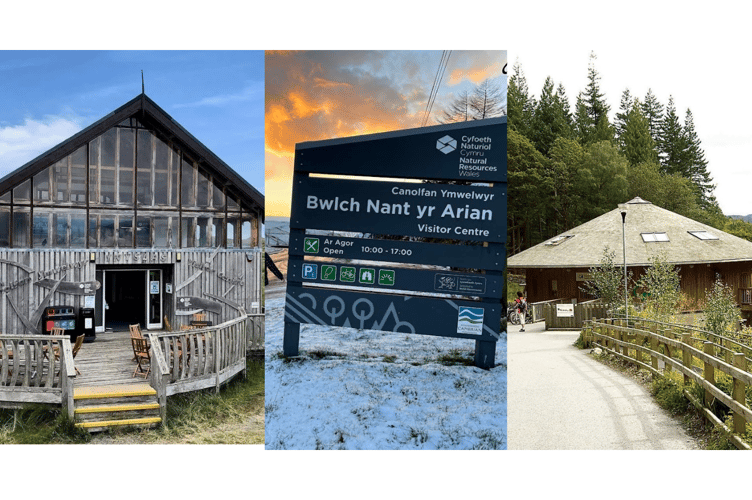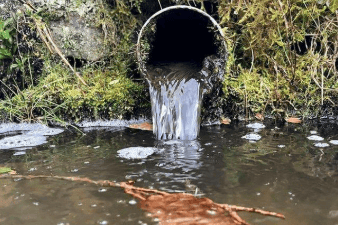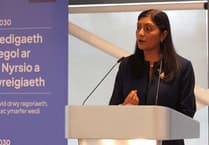A Senedd Committee says that it is ‘gravely concerned’ at Natural Resources Wales’ plan to reduce the number of low category pollution incidents it responds to.
The Climate Change, Environment and Infrastructure Committee’s annual scrutiny of the environmental watchdog highlights several concerning aspects of how it plans to keep an eye on things like fly-tipping, illegal chemical dumping and water pollution.
NRW’s new plan is to focus on larger incidents and to adopt a “higher tolerance of risk” in how they manage reports of pollution in Wales.
The committee’s conclusion is that years of under investment have stretched NRW too thin and that the body is already not funded sufficiently to deal with enforcement of environmental crimes in Wales. Any further reduction in the watchdog’s ability to respond is described as ‘concerning’.
NRW told the Committee that the current levels of fines and sanctions available to it are insufficient to have the desired effect on polluters. Consequently, today’s report calls on them to explain where it feels the level of fines is too low for it to be able to perform its environmental regulation duties effectively.

The committee was also critical of the closure of three visitor centres at Coed y Brenin, Bwlch Nant yr Arian and Ynyslas in March.
Although the regulator has committed to reopening visitor centres, there is currently no clear timetable for this, according to the committee.
The report says that new proposals for the visitor centres should have been developed before the centres were closed and that this should now be published ‘as a matter of urgency’.
In October 2024, it came to light that the Welsh Government had stepped in to pay a £19m tax bill owed by NRW to HM Revenue and Customs, concerning the incorrect classification of workers’ tax status. The Committee says that this mistake highlighted ‘serious governance failures’ at the organisation.
The report says that it is ‘highly regrettable’ that taxpayers’ money is being diverted from front-line services to pay for such errors.
The Committee is asking both NRW and the Welsh Government for assurances that improved oversight is in place and that lessons should be learned through a comprehensive review of the debacle.
Llyr Gruffydd MS, committee chair, said: “Recent decisions made by NRW are deeply troubling and raise questions about the future of environmental stewardship in Wales.
“By choosing to adopt a 'higher tolerance of risk,' NRW risks turning a blind eye to pollution incidents that, while perhaps deemed less impactful, still erode the health of our ecosystems and communities.
“NRW's approach, a consequence of years of inadequate funding in the regulator, is gravely concerning. It leaves Wales vulnerable to environmental damage and fails to honour the values that should guide such a vital body.
“Additionally, the closure of visitor centres - spaces that connect people to our natural beauty - feels like an abandonment of public trust. It is unacceptable that no credible plan or timetable to reopen these centres has been provided yet – something that should have been developed long before the closures.”
In response, Ceri Davies, Interim Chief Executive at Natural Resources Wales said: “The last year has been a significant period of change and challenge for our organisation, as we live within the resources available to us.
"Our goal is to ensure that every pound of public funding we receive delivers maximum value - focused on tackling the climate and nature emergencies, addressing environmental risks, and making decisions that drive the greatest positive impact for future generations and maximising our impact where it’s most needed.
"Responding to environmental incidents is a core part of our work, especially as climate, nature, and pollution pressures accelerate, and the number of incidents reported to us increase. Like all public bodies with finite resources, we must focus our efforts where we can make the greatest impact.
“We will always prioritise incidents that pose the highest risk to people and nature, putting people on the ground if needed, and ensuring a response that is risk-based, intelligence-led, and data-driven.
“Our corporate plan to 2030 also commits us to minimising pollution through more effective prevention and response. A key part of this work involves enhancing the way we assess and respond to environmental incidents.
"Most incidents reported to us are low-level, often with little or no environmental impact. Of the incidents we attended last year, only 5% were confirmed as having significant or major environmental impact.
“We want the public to be assured that responding to incidents with the highest risk to nature and people will always be our top priority.
“We have put in place a number of controls to provide assurance in relation to our approach to compliance with IR35 regulations, and a new internal “Ways of resourcing with people and skills procedure” has been produced for all hiring managers to follow.
“We understand how important our sites are to local communities and visitors. We want to reiterate and reassure the public that all our sites remain open. This includes the paths, trails, car parks, play areas and toilet facilities, and the important work undertaken to protect wildlife and maintain these sites continues to be overseen by our land management staff.
“Our strategy for how we manage access to nature on the land in our care means we need to focus our efforts where we are best placed to make a difference. This includes maximising the benefits from every pound we spend, that we deliver value for money, and ensuring that outdoor recreation is managed within resource limits.
“Over recent weeks and months, our focus has been firmly placed on the process to find partners, both community groups and businesses, to register an interest in providing services at the visitor centres.
“We have secured a beverage and cold food concession which is now operating at Bwlch Nant yr Arian, full-time site management for the beach car park at Ynyslas and have advertised opportunities for a mobile beverage and ice cream unit concession at Ynyslas, and a cold food and beverage concession at Coed y Brenin.
“As stated during our public meetings late last year, we want to make sure we get it right to avoid confusion and any potential issues in the future and we believe it is important to take the necessary time now for a smooth process later on.”



-(1).png?width=209&height=140&crop=209:145,smart&quality=75)

Comments
This article has no comments yet. Be the first to leave a comment.